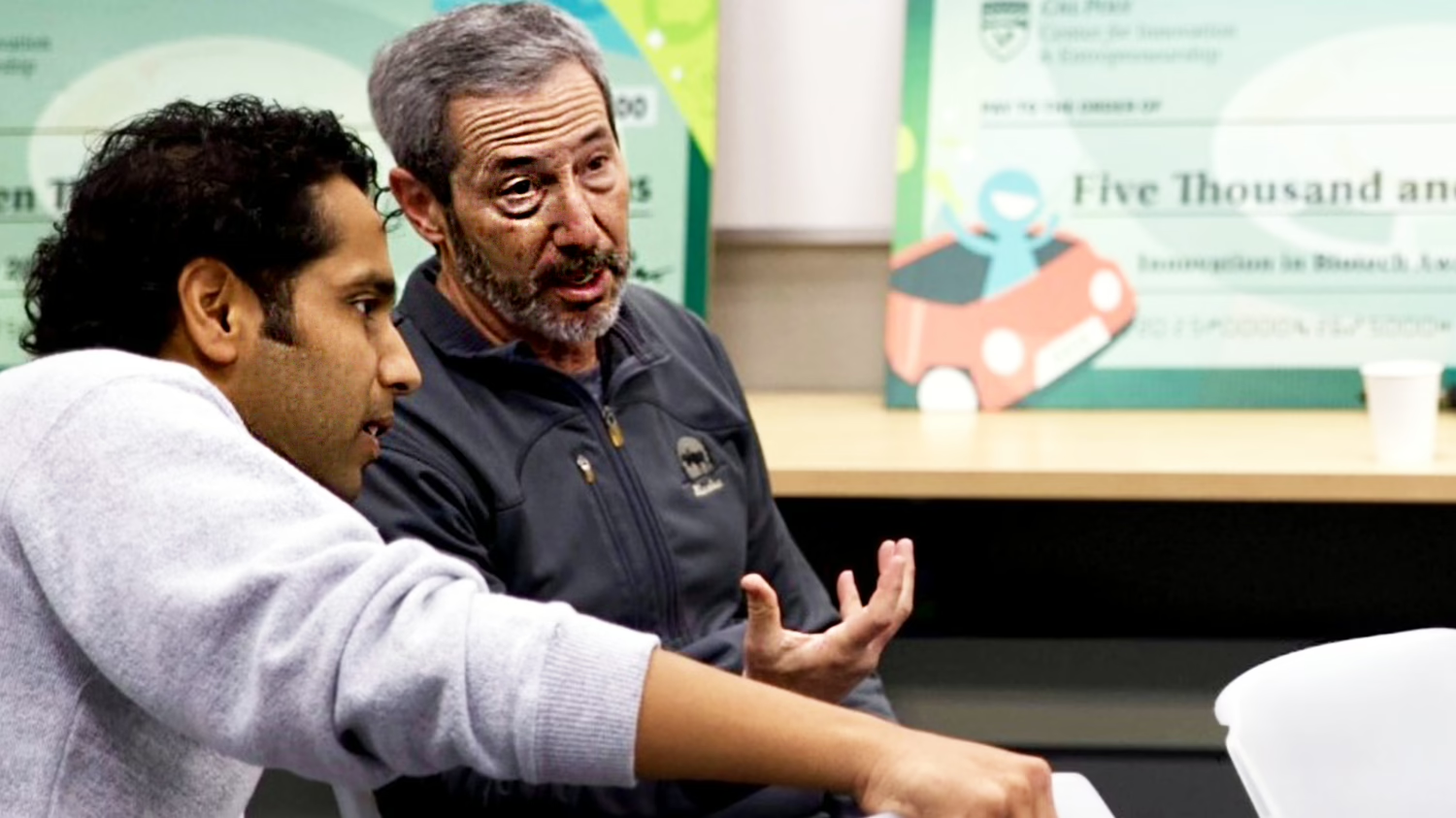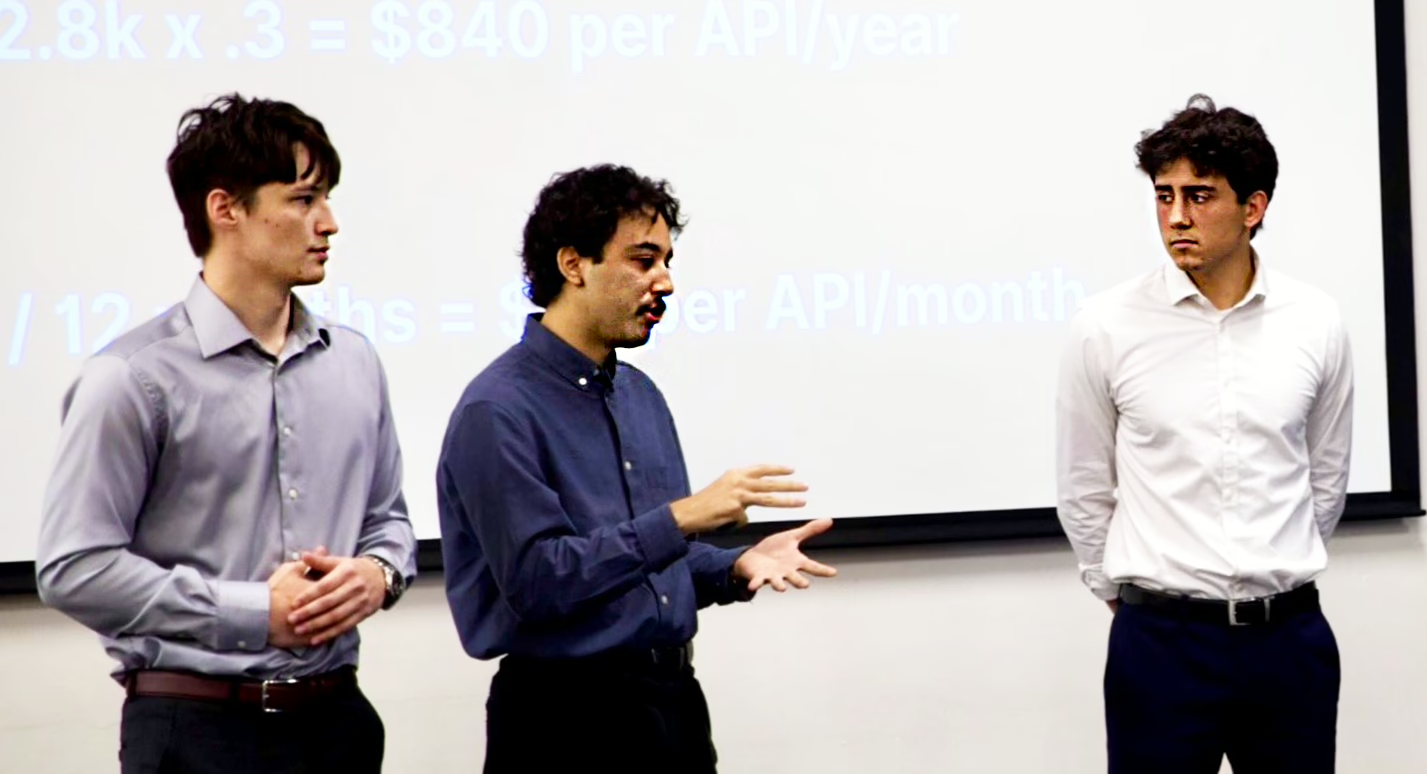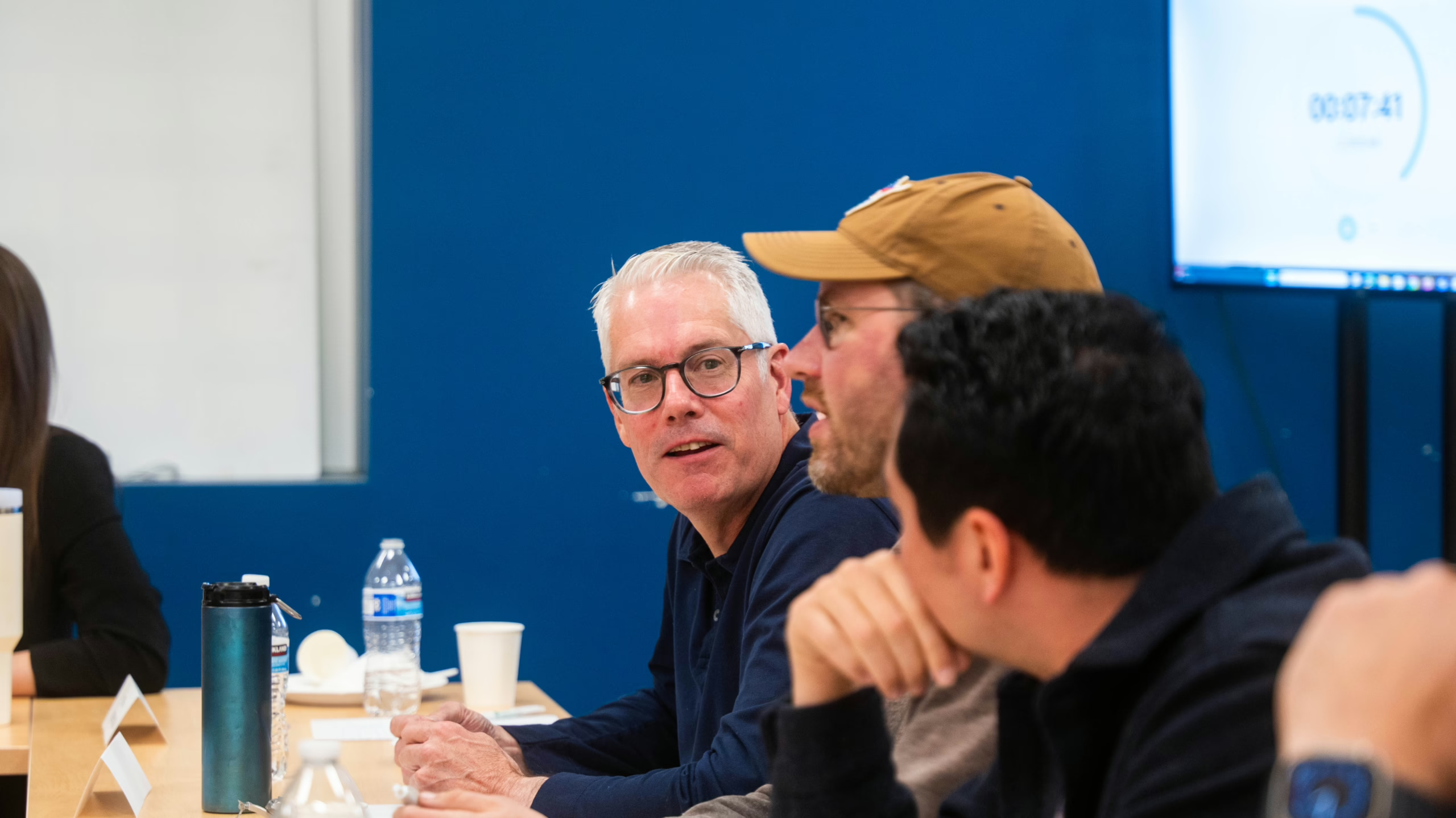Several Student-Led Startups Compete for Seed Money in Annual Innovation Quest

Victoria Asencio-Clemens and Ben Tratt discuss their startup, Simpill, which aims to help people manage their medication. (Photo/Marley Logan)
Nearly a dozen student-led startups pitched their ventures at Cal Poly on Saturday, April 26, competing for seed funding in this year’s Innovation Quest. The competition, now in its 20th year, is run by the Cal Poly Center for Innovation & Entrepreneurship (CIE), housed within the Orfalea College of Business. More than 50 teams applied this year, with 11 selected as finalists to present their ventures to a panel of judges comprised of entrepreneurs, investors and professionals from across industries.
Over the past two decades, the CIE has helped launch dozens of early-stage startups, with Innovation Quest awarding more than $400,000 to support student initiatives.
Among the finalists this year were several students from the Orfalea College of Business, including business administration senior Oliver Haas, a member of the team behind Preserva Biosciences.

The Center for Innovation & Entrepreneurship assists startups by providing seed money, tools, space and mentorship. Here Anan Sheth speaks with Barry Lieberman, entrepreneurship faculty member.(Photo: Marley Logan)
Computer engineering student Ethan Vosburg led the pitch, using a standard insulin bottle and a prototype to demonstrate the portability of their at-home insulin testing device, which is designed to help insulin-dependent individuals track dosage effectiveness in real time. During the Q&A, Preserva’s entire team was present with Haas fielding a few of the more technical follow-up questions, reinforcing a sense of preparation and teamwork that ended up earning them the Biotech Innovation Award and a $5,000 prize (sponsored by Leslie and Brett Eldridge).
“I am so proud of all the teams that presented today,” said Thomas Katona, an associate professor of innovation and entrepreneurship at Cal Poly and one of the event’s organizers. “Each group brought some form of working prototype.”
Many students donned business attire, with men in dress shirts or full suits and several women in professional pantsuits. Most teams projected slide decks, which they walked through before taking part in detailed Q&A sessions from the judges, who did not shy away from tough questions. The judges were seated in a U-shaped arrangement around the presenter, giving each pitch the seriousness and professionalism of a corporate boardroom.

The Devscribe team aims to simplify API documentation. Pictured here, discussing their startup during Innovation Quest, are (left to right) Tyler Kim, Shivam Shrivastav and Gianni Hart. (Photo/Marley Logan)
One of the most memorable examples came from Better Being Kefir, the final team to present, who offered judges samples of their probiotic frozen dessert during their pitch.
The company was co-founded by business administration student Wian Roothman and agricultural business major Alexandra Malone. Their team earned the third-place Bakir Begovic Innovation Award and a $5,000 prize.
GreenSight Technologies earned second place and a $10,000 prize for its AI-powered platform designed to streamline electronics recycling. The team’s mobile tool, called Scan-For-Value, uses computer vision and machine learning to identify, price and route used devices, helping facilities make faster and more profitable decisions about resale or recovery.

Brett Eldridge (MBA, ’95), left, and Kyle Weins (Computer Science, ’05) were on the panel of judges for the Innovation Quest. (Photo/Melody Braunstein)
“Our team came together through an entrepreneurial senior project at Cal Poly,” said CEO Jake Daniels, an engineering student who is pursuing an entrepreneurship minor. “We realized how much electronic waste is being thrown away or undervalued, and we saw an opportunity to automate that process using the latest tools.”
Daniels said that the team is preparing to begin beta testing later this month with three electronics recycling companies while continuing to raise funds toward a $400,000 goal, $150,000 of which has already been secured.
The first-place Innovation Award and $15,000 prize went to Neurocom, led by mechanical engineering student Alex Rosenbaum. The startup is developing a wearable haptic device designed to assist military personnel and first responders by improving navigation and communication in environments where visual or auditory cues might fail.
For some teams, the greatest return came not from the prize money, but from the opportunity to build and refine their ideas. GreenSight Technologies, which returned to Innovation Quest after failing to place the year before, saw their persistence pay off.
“We didn’t place last year,” Daniels said. “But we received resources that helped us get our business off the ground. It came full circle after placing this year.”
Your support for the Center for Innovation & Entrepreneurship helps students have an impact on communities, often offering innovations that improve quality of life.
